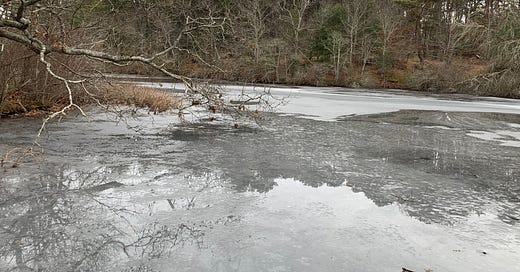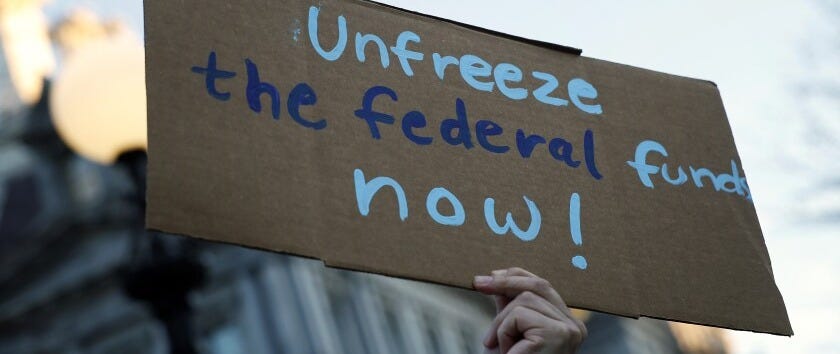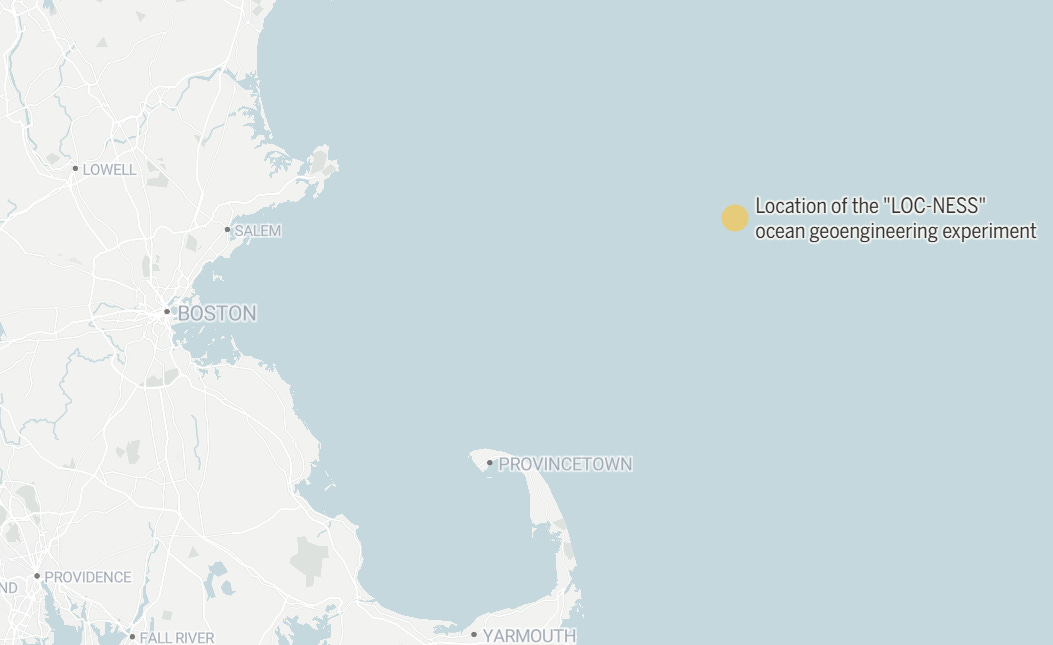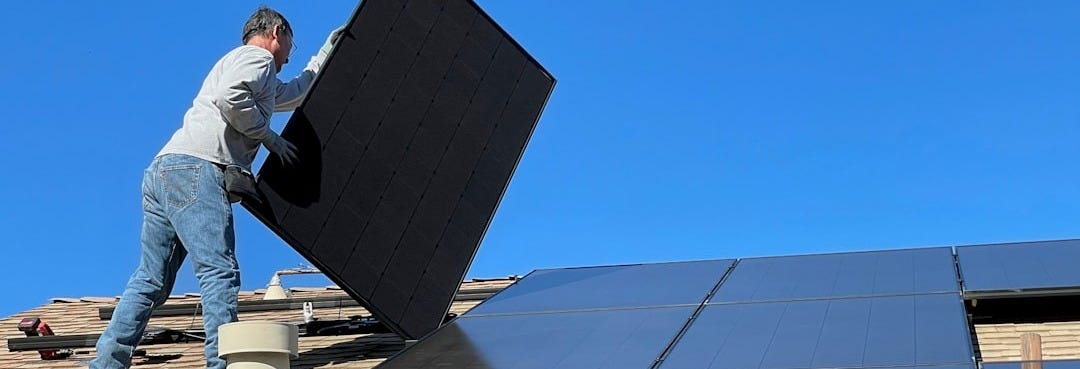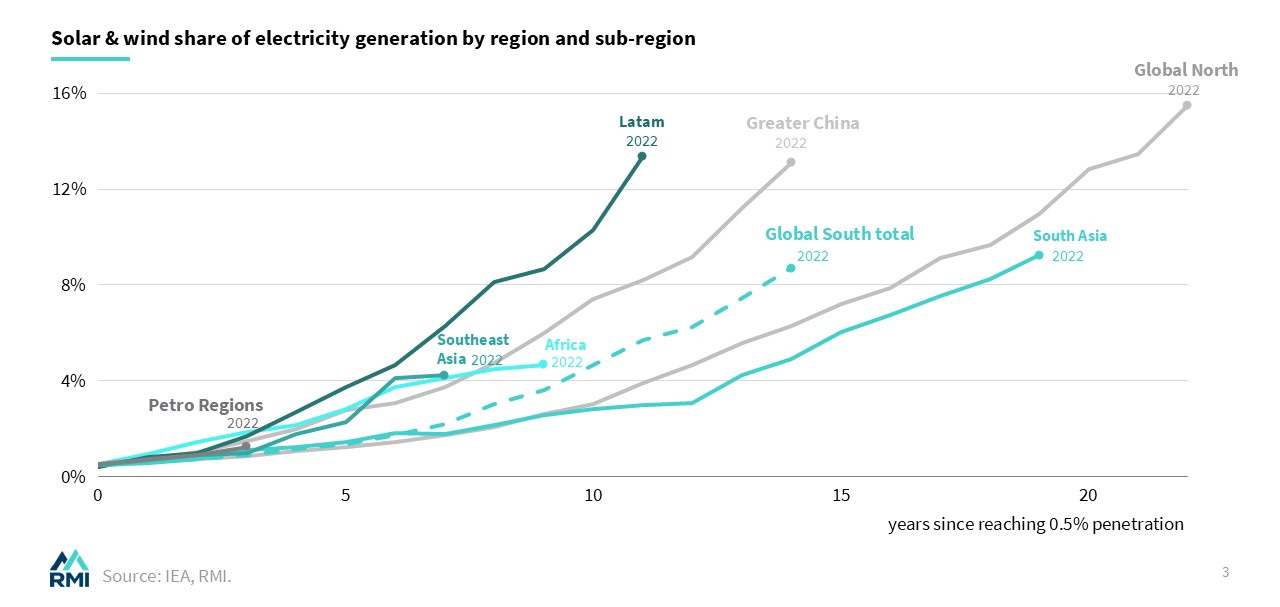Feb 7: Youth Climate Summit, Cli-Fi book recs, and Trump/Musk's chaos hits climate
Also, Bill McKibben wants everyone to know: Solar is the Costco of energy
NOTE: The table of contents items below are linked to the articles, but this feature only works if you are reading the post in Substack while logged in - apologies for the inconvenience.
In this issue:
Cape & Islands
Mass Audubon Youth Climate Action Summit — young leaders develop tools and get stuff done
The power of, and need for, Climate Fiction (plus book recs by the experts)
Marsh restoration funds still frozen; local economies will feel the pinch
Massachusetts
United States
NSF existing grant funding restored on Feb 2, but grants still under review
Fossil Fuel Fanboys installed at the head of key climate and environmental agencies
The fallout is building: $2.5B battery plant cancelled in the state of Georgia
Trump and Musk targeting NOAA and the EPA (among other agencies)
International
Will the Global South leapfrog fossil fuels and go straight to renewables? A look at Pakistan
New study out by reknowned scientist: pace of global heating has been significantly underestimated
Events and Activities
In person events at the Center for Coastal Studies and Woodwell Climate Research Center coming up
Conservation Calendar — great outdoor and indoor activities this week
Cape & Islands
Young leaders developing tools for climate action — and getting stuff done
“I learned about the importance of salt marshes: how they protect against hurricanes, pollution, how much carbon they sequester. They are amazing, and most people don’t know,” said Megan, a senior at Cape Cod Academy, where she heads the environmental club.
Megan was one of about 75 participants representing five high schools at the February 6 Mass Audubon Youth Climate Summit held in Harwich. This is the sixth such summit to be held on the Cape.
“Mass Audubon started the Summits in western Massachusetts as a way to help young people gain some agency in addressing the climate crisis,” said Morgan Peck, Mass Audubon’s Camp Director and Education Coordinator at the Wellfleet Bay Sanctuary and the program’s leader. “Teachers were hearing a lot of grief, a lot of angst and hopelessness from their students.”
The program helps students build tools for action: the Summit itself is planned and executed by a small group of students, the Youth Climate Leaders. One of those leaders, Coleman, a junior at Cape Cod Academy, explained that the group had chosen “coastal resiliency” as this year’s theme. Noelle, also a Climate Leader and a junior at Cape Cod Academy, said they had reached out to environmental and other clubs at different schools to recruit attendees.
Sessions at this year’s Summit included Storm Impacts and Ecosystem Responses, Municipal Coastal Solutions, Salt Marshes as Natural Solutions, Eating for the Planet, and Climate Action – The Built Environment. “We want students to learn ways they can behave that help the climate,” said Peck.
However, Peck believes it’s the Summit’s Mock Town Halls that set it apart, “For me, they are the center of the day,” said Peck. “Young people are not taught in high school the importance of local government.” The Mock Town Halls teach students how to speak at town meetings. “They are too young to vote, but they are not too young to speak up,” said Peck.
Towards the end of the Summit, students form groups by school, and each group develops a Climate Action Plan. Over the next months, Peck will meet with the students weekly, over zoom. Students provide updates and receive support for their projects, both from Peck and each other.
Successful past projects include getting Nauset High School to return to multi-use utensils and plates, rather than stick with the single-use utensils the school adopted during the pandemic. Another group of students helped raise grant funding to plant over 1,000 trees in green spaces in Barnstable. At Cape Cod Academy students refurbished the school’s community garden.
“I tell them to focus on the achievable, where they have control. And that everything matters,” said Peck.
The power of, and need for, Climate Fiction
“We’re not going to be able to understand our climate future without stories. How do we come to grips with a +2 degree Celsius world?” said Christopher Schwalm, Risk Program Director and Senior Scientist at Woodwell Climate Research Center (Woodwell), at the February 4th panel, Our Climate Future: Fact + Fiction, hosted by Woodwell.
Joining Schwalm were Framingham State Professor Vandana Singh and Joey Eschrich, Managing Editor for the Center for Science and the Imagination at Arizona State University. The panel was developed and facilitated by Heather Goldstone, Woodwell’s Chief Communications Officer.
Climate fiction, or “cli-fi”, is a growing genre, according to the New York Public Library, with “more authors, of both literary fiction and speculative and science fiction, choosing to tell stories through the lens of a world dramatically altered by changes to earth's climate.”
“Speculative fiction immerses us in possibilities, in alternatives. It helps us understand that how we live is a construct, and that other possibilities exist,” said Singh. “We need the warnings, the pathways through.”
“At its best, it sensitizes us to opportunities,” said Eschrich.
In this time of eroded trust, and the “confused and confusing information landscape. Does climate fiction muddy the waters?” asked Goldstone.
“I try to be more transparent in my writing,” said Singh. “Fiction has existed since the dawn of time. We create elaborate constructs to reveal a deep truth. This is not the same as telling lies or, even worse, half-truths.”
This panel built on the success of a “visioning” webinar run by Goldstone three years ago in which Singh and Eschrich participated.
“The main thing I hope our science-minded audience takes away from this is that science is one critical piece of the puzzle when it comes to our climate future, and it is in conversation with many others, including imaginative practices and fiction writing. I hope that will provide context for and new points of connection with Woodwell Climate's work,” wrote Goldstone in response to questions.
“In moments of intense pressure, it is easy to lose sight of the big picture. But that is when vision is most important. So, I would argue the need for climate fiction and other imaginative and values-based practices has never been greater,” wrote Goldstone.
Future events hosted by Woodwell Climate Research Center can be found here.
Book Recommendations
From Joey Eschrich:
Kim Stanley, Ministry for the Future by Kim Stanley Robinson
China Mieville, Three Moments of an Explosion
Pitchaya Sudbanthad, Bangkok Wakes to Rain
From Heather Goldstone:
Octavia Butler, Parable of the Sower
From Christopher Shwalm:
Jeff VandeMeer, Southern Reach series
Neal Stevenson, Termination Shock
From Vandana Singh:
Ray Nayler, The Mountain in the Sea
Court Order notwithstanding, some federal funds are still frozen — Cape communities will feel the pinch
As of February 5th, “APCC remains unable to access the federal payment system to submit invoices for work legally authorized to be completed under the terms of binding contracts,” posted Andrew Gottlieb, the Executive Director of the Association to Preserve Cape Cod (APCC).
The continuing freeze on almost $18M of grant funding due to APCC will affect six projects in four towns. “The result will be the continued burden on Cape residents and the environment that comes from poor water quality and degraded habitat,” wrote Gottlieb.
The freeze hits local economies, too. “People don't always understand that the money goes through us into the community,” said Dorria Marsh, APCC’s Communications Specialist and Volunteer Coordinator. According to Gottlieb’s post, roughly 95% of the funds get passed through APCC to the community.
APCC identifies the problem and applies for a grant to pay for the restoration or repair work. “For example, if there's a boat ramp that needs repair, APCC does not fix the boat ramp itself. We hire a for-profit company to do the work,” said Marsh.
The funding freeze appears to be hitting grantees on the Cape and elsewhere inconsistently. Sarah Colvin, Communications Manager at the Cape Cod Commission, on February 5, wrote in response to questions: “We have not been instructed by any grantor to suspend work or expect delays in reimbursement. We have also not provided any guidance to pass through entities working for us. The Commission expends around $2 million in federal funds annually.”
Similarly, the official statement from the Town of Wellfleet regarding the major Herring River Restoration Project underway in that town, says, “The project team continues to monitor the funding situation carefully. At this time the project funders have not communicated any guidance that would alter the construction timeline.”
According to Reuters, however, on February 6th, a lawyer with Democratic New York Attorney General Letitia James' office told U.S. District Judge John McConnell in Providence, Rhode Island, on Thursday that even after his January 31 Court Order, “state agencies were still having difficulty accessing federal funds they were entitled to.”
From Reuters, "We've had communications from the defendants indicating that they believe there are certain funds not subject to the temporary restraining order, including the billions of dollars of infrastructure legislation and the Inflation Reduction Act," Rabia Muqaddam, a lawyer with James' office, said on behalf of the other states.
"If you do want me to act on that concern – rightful concern I understand on behalf of your clients -- then get something before me and we will figure out how to deal with it quickly," McConnell said.
He tentatively scheduled a February 21 hearing on whether he should issue a longer preliminary injunction.
Climate and environment priorities this legislative session for State Senator Cyr, Cape & Islands
According to Senator Julian Cyr’s February newsletter, his climate and enviroment-related priorities for this session include:
Increasing the availability of flood insurance in Massachusetts
Proposing a grant program for residents who take steps to make their homes more resilient to climate change
Taking a second pass at omnibus PFAS legislation.
Massachusetts
Scientists call off ocean geoengineering trial south of Martha’s Vineyard, turn to deep ocean basin instead
Boston Globe, by Erin Douglas, Feb 6, 2025
Scientists have withdrawn plans to conduct a controversial geoengineering experiment this summer in ocean waters south of Martha’s Vineyard.
The experiment to tinker with the pH of a patch of ocean water in August will instead be done in a deep Gulf of Maine basin, about 50 miles east of Gloucester and 38 miles northeast of the tip of Cape Cod.
The geoengineering experiment being pursued by Woods Hole Oceanographic Institution scientists will test whether adding an extremely alkaline mixture of sodium hydroxide solution can coax the ocean into swallowing more carbon dioxide than it already does. The goal is to measure exactly how much carbon is stored in the process and to document any impacts to the ecosystem.
“We should not be dumping dangerous chemicals into thriving marine ecosystems,” said Benjamin Day, a senior campaigner for Friends of the Earth, a group that has opposed geoengineering. “Climate change is already threatening New England fisheries, and the last thing we need is additional threats from geoengineering.”
The private sector, meanwhile, is already moving fast on this type of ocean geoengineering. At the end of 2024, the Canadian company Planetary Technologies was the first to sell “ocean alkalinity enhancement” carbon credits from a project that adds the very alkaline substance magnesium hydroxide to Halifax Harbour. (The e-commerce company Shopify and the financial services company Stripe purchased the credits.)
The Woods Hole scientists say their experiment in the Gulf of Maine will provide much-needed field data since, thus far, most private efforts are heavily relying on models. Full story.
Trump’s attempted funding freeze was blocked. So why are billions in grants for solar still locked up?
Massachusetts had been awarded $156 million to put solar panels atop low-income housing.
Boston Globe, by Sabrina Shankman and Erin Douglas Feb 4, 2025
Just weeks into the Trump administration, the $7 billion Solar for All program — an effort run by the Environmental Protection Agency — is effectively on hold, as awardees who have received federal grants find themselves locked out of an online platform to access the funds.
Last week, two judges temporarily blocked those attempts in response to lawsuits brought by a nonprofit coalition and a group of states, including Massachusetts. The judges ordered the funding to be resumed.
In theory, that means the spigot should be open again. Except, according to solar advocates, legal experts, and awardees, as of Monday, the Solar for All funds remained inaccessible. In Massachusetts, that means some $156 million that would benefit an estimated 31,000 households is on ice. Full story.
Boston protests against illegal and unconstitutional acts by Trump administration, February 5, 2025
United States
NSF Funding flows resumed Feb 2, but grants still being reviewed
Update on National Science Foundation (NSF) funding, upon which our Cape Cod research institutions depend, as reported on February 5 in Chemical and Engineering News:
The NSF froze payments for existing awards on Jan. 28 as it began conducting a comprehensive review of its grant and fellowship programs to ensure compliance with President Donald Trump’s recent executive orders.
Then 4 days later, on Feb. 2, the NSF unceremoniously announced that postdocs could now access their fellowship funds and should be receiving their stipends over the next couple of days. An FAQ provided by the agency cited the restraining order as the reason behind the sudden reversal.
For now, the temporary restraining order prevents the NSF from canceling or terminating existing awards for any reasons related to any of the executive orders. But, as Nature reported on Feb. 3, the agency is still searching for award programs that violate Trump’s executive orders. Full story.

Fossil Fuel Fans installed at top of Dept of Energy, EPA, and Dept of the Interior
Chris Wright, confirmed as Energy Secretary, was most recently the founder and CEO of Liberty Energy, a fracking company based in Colorado, worth about $2.8B in 2023, according to the WSJ. Trained in mechanical and electrical engineering at MIT, he is known for “his skepticism of climate change,” reported US News.
Lee Zeldin, confirmed as EPA Administrator, was “chair of the China Policy Initiative and the Pathway to 2025 program at the America First Policy Institute, a conservative, pro-Trump think tank. The organization, which was co-founded by billionaire Trump donor and oil executive Tim Dunn, aims to increase fossil fuel production and reduce fossil fuel regulations,” according to Rolling Stone. Prior to that he represented NY District 1 in Congress, and defended Trump in his first impeachment.
Doug Burgum, confirmed as Interior Secretary, former governor of North Dakota, the third-largest oil producing state, has a close relationship with fossil fuel producers. The AP reported that while governor, Burgum was profiting from the lease of family land to oil companies.
Advancing the fossil fuel agenda, in line with Trump’s Executive Orders — Burgum’s first day orders
As reported by E&E News by Politico Burgum’s orders:
Directed an agencywide investigation of how to boost domestic energy sources and critical minerals under existing legal authorities and under “emergency” authorities.
Notified Interior bureaus that Biden’s ban on new oil leasing in parts of the Arctic, Pacific and Atlantic oceans has been revoked by the president.
Broadly ordered his department to end any actions that would implement Biden-era executive orders on climate and environmental justice.
Requires plans to revise all draft and finalized plans to protect the greater sage grouse.
Withdraws a 2021 Interior solicitor’s opinion that the Migratory Bird Treaty Act banned both intentional and unintentional killing and harming of migratory birds, and reverts to a 2017 opinion that limited the ban to intentional harm or killing, which relieves responsibility for transmission line related harms.
Orders suspending, revising, or rescinding Endangered Species Act regulations, which will face challenges.
Trump Administration efforts to slow or stop the shift to renewables sow chaos and confusion
On February 6, Trump sent a memo cancelling the $5Billion federal electric vehicle charger program, in which state plans have been approved but much of the funding has not yet been obligated. Changing this funding requires Congress to change a law, so this will be challenged in court, reported Electrek.
On February 5, the Army Corps confirmed it had “temporarily paused evaluation on” 168 pending permit actions “focused on regulated activities associated with renewable energy projects,” in a statement to Heatmap. On February 6, the Army Corp of Engineers announced in a one-sentence statement that it lifted its permitting hold on renewable energy projects, but Heatmap reports that developers are hearing otherwise. Full story.
Under Biden, the DOE’s Loan Programs Office issued a total of 53 loans and loan guarantees worth over $107 billion according to Canary Media. LPO’s new director, John Sneed, is exploring whether it’s legally viable to cancel existing loans made by the office, according to reporting from Bloomberg.
The fallout is building: $2.5B battery factory for Georgia, scrapped
Atlanta News First staff, Feb 6, 2025
A state official says a Norway-based battery manufacturer has scrapped plans to build a factory in metro Atlanta.
The Coweta County project would have been Freyr Battery’s first American factory. It promised hundreds of jobs and a $2.57 billion investment in the Peach State. Full story.
Targeting NOAA, a key resource for coastal states
NOAA’s mission, as described on its website reads, “NOAA’s mission to better understand our natural world and help protect its precious resources extends beyond national borders to monitor global weather and climate, and work with partners around the world.”
Corporations have long wanted NOAA to stop making their data public, and instead give it to private corporations who could then charge for weather reports and other products, according to The Guardian.
NOAA employees were ordered to give editor access to all their google sites to an engineer named Nikhil Rajpal, representing Elon Musk’s so-called Department of Government Efficiency, reported Wired.
NOAA employees have received orders to temporarily cease communicating with foreign nationals, including those working directly with the US government, Wired reported.
Trump administration has instructed the National Academies of Sciences, Engineering and Medicine to halt at least two studies sponsored by NOAA, citing the anti-DEI Executive Orders, reported E&E News by Politico.
Over at the EPA
Reuters reported, “The Trump administration has placed on leave nearly 200 employees who work on environmental justice programs at the Environmental Protection Agency, and is pursuing staff reductions in similar programs at the Justice Department.”
“More than 1,100 Environmental Protection Agency employees could be at risk of spontaneously losing their jobs, according to a Trump administration memo,” reported The New Republic.
"Everyone thinks of solar like the Whole Foods of energy - better for you, but pricey. In fact, it's now the Costco of energy, and everyone needs to know that."
— Bill McKibben, @billmckibben.bsky.social
International
Trump may be dragging the US back to the coal age, but the Global South could be leapfrogging fossil fuels, going straight to renewables to meet its growing energy demands.
The Global South’s Cleantech Revolution in Five Charts
Global South countries are rapidly adopting clean energy, seizing the fastest and cheapest path to prosperity in history.
RMI, by Vikram Singh, Will Atkinson, Feb 4, 2025
Led by on-the-ground action
Much of this trend is being driven by energy consumers looking to save on electricity costs. Satellite images in parts of Pakistan show nearly every building covered in solar panels. Tanzania’s electricity access has more than tripled in just the past decade, from 14 percent in 2011 to 46 percent in 2022. Efforts to electrify agricultural processes in Nigeria are scaling at speed.
This explosion of growth is happening across the globe. From Namibia to Barbados, solar panels from China alone have roughly doubled the total capacity of some nations’ electricity systems in just a few years. With panel costs dropping 35 percent in 2024 alone, progress is unlikely to stop soon. Full story.
An in-depth look at what’s happening: Pakistan Is Only the Beginning of the Cheap Solar Revolution
No need for expensive imported fuel when your energy is coming from the sun.
Heatmap, Ryan Cooper, Oct 1, 2024
Pakistan has long had a severely troubled economy, and a central part of the problem is its electric grid. Much of it was constructed back in the 1960s and has not been maintained or updated regularly.
But things are changing, and fast. Pakistan imported a whopping 13 gigawatts of solar panels, mostly from China, in just the first half of 2024, mostly for rooftop installations for homes and businesses. That’s a mind-boggling amount of new solar for a country that only had about 50 gigawatts of installed generation capacity in total in 2023.

Climate change target of 2C is ‘dead’, says renowned climate scientist
The Guardian, Damian Carrington Environment editor, Feb 4, 2025
The pace of global heating has been significantly underestimated, according to renowned climate scientist Prof James Hansen, who said the international 2C target is “dead”.
In the new study, published in the journal Environment: Science and Policy for Sustainable Development, Hansen’s team said: “Failure to be realistic in climate assessment and failure to call out the fecklessness of current policies to stem global warming is not helpful to young people.”
Climate scientist Dr Zeke Hausfather, who was not part of the study, said it was a useful contribution. “It’s important to emphasise that both of these issues – [pollution cuts] and climate sensitivity – are areas of deep scientific uncertainty,” he said. Full story.
Activities and Events

Feb 19, In Person — Center for Coastal Studies, Dr. Casey Thornbrugh of the Mashpee Wampanoag Tribe on Climate Change
The Napi’s Winter Lecture Series continues on Wednesday, Feb. 19, at 5 pm at the Center for Coastal Studies’ Hiebert Marine Lab with a talk by Dr. Casey Thornbrugh of the Mashpee Wampanoag Tribe. Refreshments will be served. The event is free and open to the public.
Dr. Thornbrugh will discuss climate change impacts and adaptation, and the challenges faced by Tribal Nations and Indigenous Communities, with an emphasis on East Coast and coastal regions. “Tribal Nations are leading the way in climate change adaptation planning and resilience,” said Dr. Thornbrugh.
More information and registration here. Free.
📅Feb 19, 5:00 - 7:00 pm 🗺️📌5 Holway Ave, Provincetown, MA 02657
Feb 26, In Person — Woodwell Climate Research Center, Life in the Pyrocene, Wildfire science for solutions from the Arctic to the Amazon
Fueled by climate warming and land use, wildfires are a growing threat to climate, people, and ecosystems around the world. From the Arctic to the Amazon, Woodwell scientists are working to develop technological innovations, engage fire managers, and inform policy for wildfire solutions.
Come learn more about the science and paths forward for managing wildfire in a warming world.
More information and registration here. Free.
📅Feb 26, 5:00 - 7:00 pm 🗺️📌149 Woods Hole Road, Falmouth, MA 02540
Feb 26, Virtual — RMI, Eliminating the Need for Mining EV Battery Minerals by 2050
Wednesday, Feb. 26, 12:30–2 p.m. ET (Virtual): York University is featuring RMI research in their upcoming webinar Eliminating the Need for Mining EV Battery Minerals by 2050: Data-driven Insights on Enabling an Efficient, Responsible EV Battery Supply Chain. New RMI analysis examines the potential for reductions in critical mineral extraction needed to support EV adoption and wider energy system transitions. Register for free here.
📅Feb 26, 12:30 - 2:00 pm 🗺️📌Virtual
Chatham book club, Newbies in Nature, and a Stuffie Sleepover — Check out the Cape Cod Conservation Calender HERE
Powered by the “Communications Cohort,” co-led by the Barnstable Land Trust and APCC.

